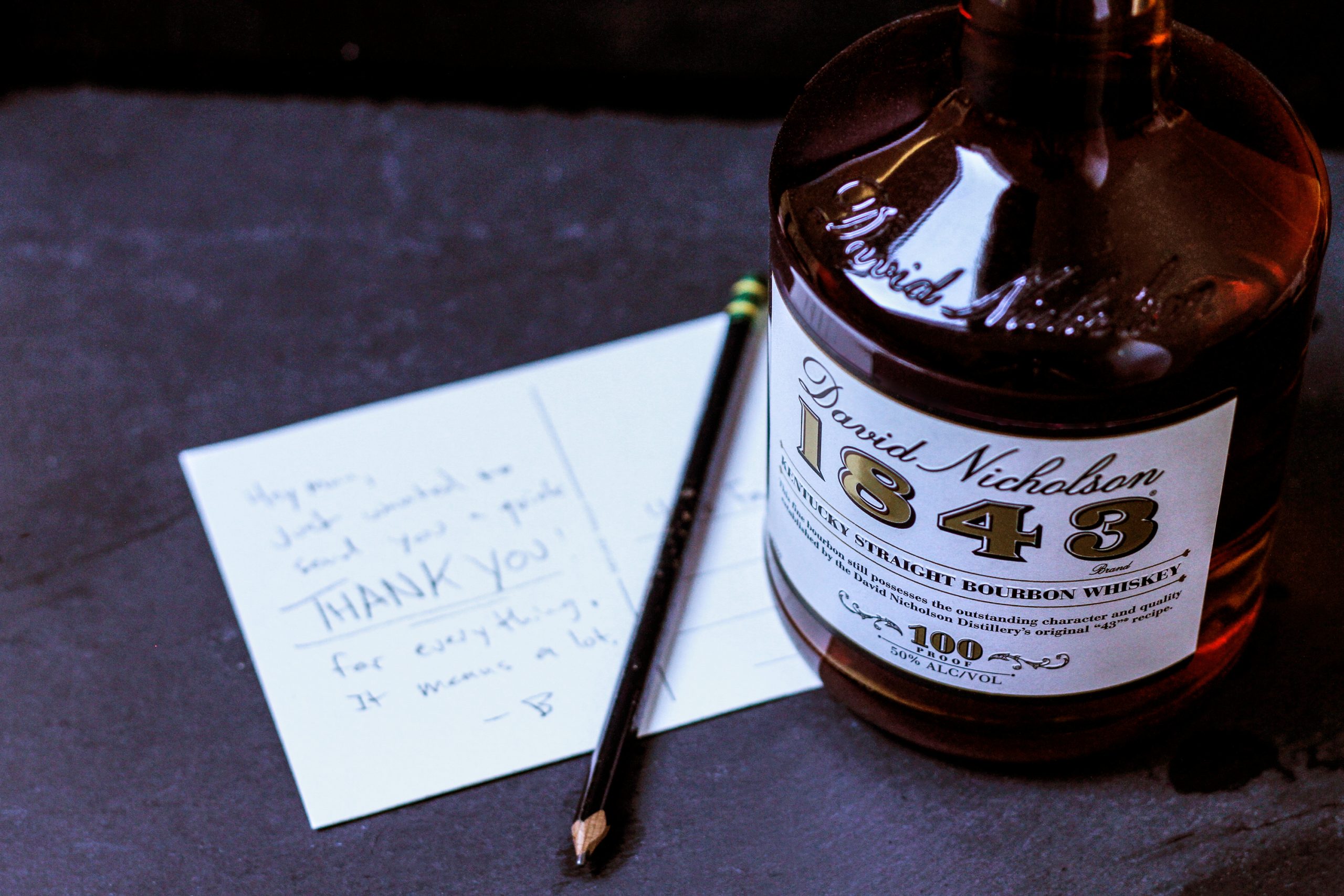
There’s a saying that goes, “good manners open the closed doors, bad manners close the open doors.” Knowing the finer points of etiquette means you’re likely to earn more respect and deepen relationships, while just generally being someone others want to be around. And connoisseurs of bourbon as fine as David Nicholson should always be on their best behavior.
But etiquette goes beyond “please” and “thank you.” Here are a few tips to keep in mind.
RSVP vs. regrets only
Before any event, the host will probably request that their guests RSVP. Even though mailing back a card is a pain — and sometimes you only need to check a box in an evite! — take the time to do it. Unless you reply “no” or “regrets only,” a host will likely interpret your silence as a “yes” and order enough food and libations to cover your presence. If you’re not planning on showing up, do them a favor and say so well in advance. And unless the invite indicates it, assume you’re not allowed to bring a guest. If you’re truly against flying solo, get permission from the host before just turning up with a plus-one.
Dress codes
From business casual to formal to festive, what everyone’s expected to wear at a gathering can be confusing. If there’s not a theme (and this is where “holiday festive” comes in), then take note of the invite’s instructions. Business casual typically means nice slacks and a collared shirt or smart blouse, while casual encompasses jeans and garments without rips or stains. Formal definitely indicates a suit for gentlemen and gowns or cocktail dresses for ladies, while black tie is on par with the Oscars: rent a tux, bring out the jewels, and go all out.
It’s all about timing
“Fashionably late” means something different to everyone, but there’s a big difference between showing up 15-20 minutes late and arriving when the party’s already winding down. If the event has a hard start — say, a wedding or presentation — take that serious and even come a little early. If it’s a looser get-together, it’s fine to be a bit late in arriving.
Host gifts
One of the most basic ways to show your good manners is by not turning up empty-handed. This means everything from a dinner party to a weekend in someone’s guest room — if you’ve been invited into a person’s home, it’s time to bring a gift. This doesn’t need to be extravagant, and a personal touch is especially appreciated. Infused olive oil, chocolates, flowers or a small houseplant, or a scented candle would all do the trick, but you’ll never go wrong with a bottle of David Nicholson.
Drink dos and don’ts
If you’re somewhere with your friend or partner, it’s a nice gesture to procure them a drink when you’re already getting one for yourself. When in someone’s home and a specific beverage hasn’t been directly offered to you, ask permission before helping yourself. And if your cocktail comes with a lemon or lime, shield the glass with your hand while you squeeze it — those nearby will thank you.
When not to text
We’re all attached to our phones, but putting yours away and focusing on company and conversation telegraphs respect. Don’t ever text at the dinner table — leave your phone in your jacket pocket or purse if you must — and if you’re expecting an urgent message, let the host know and then step away from the table to answer it.
The rules of speakerphone
Talk-to-text has made communicating easier, but sometimes it’s even quicker to just hop on a call. If you’re going to put the person on speakerphone, let them know at the start of the conversation. If they object, abide by their wishes and make the call private. If they’re okay with it, make sure you’re away from others and not in an enclosed public space, where your business could suddenly become everyone’s business.
Email etiquette
Electronic communications can also seem like a minefield (is “sincerely” or “yours truly” better?), but there’s one thing everyone can agree on: writing in all-caps is equal to yelling. It’s fine to use it once here or there for emphasis, but avoid putting phrases or whole sentences in the aggressive format. Your recipient will be put off, or might even disregard what you’ve written because it’s difficult to comprehend.
Sending a thank-you
Did a friend go all out preparing a dinner party? Did the boss invite you into their home for a company get-together? Did a friend go out of their way to help you? Any time questions like these elicit a “yes,” you should send a thank-you note. Depending on the relationship, it might be fine to just text or email your gratitude. For a work function or something more formal, take the time to write your thoughts on an actual card and pop it in the mail — that’s sure to bring a smile to the recipient’s face.



